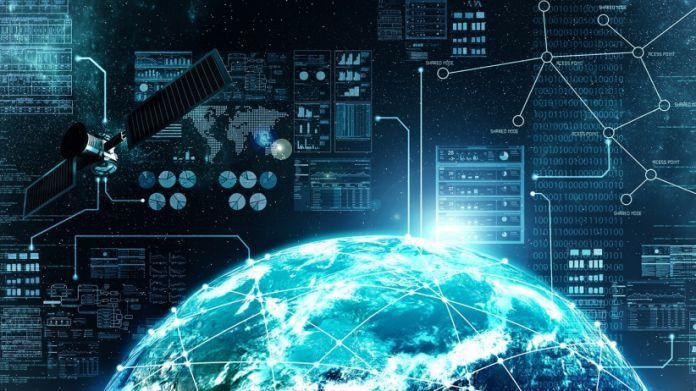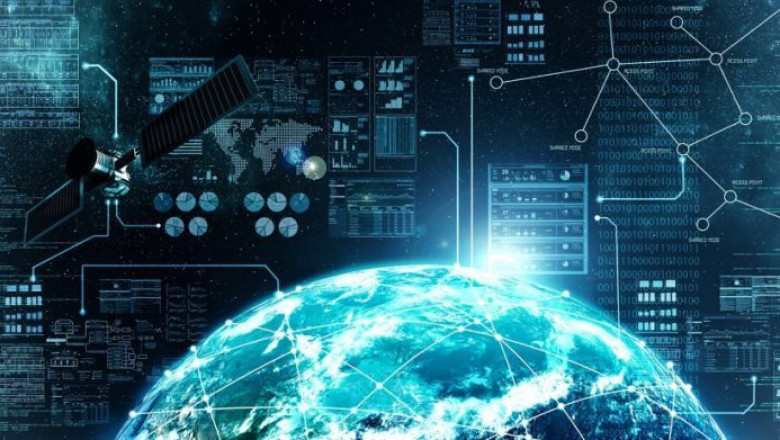views
Introduction
The internet is constantly evolving, shaping the way we communicate, work, and live. With rapid technological advancements, new trends and innovations are emerging, making the internet faster, smarter, and more integrated into our daily lives. The future of the internet promises greater connectivity, enhanced security, and improved efficiency across industries.
The Rise of 5G and Beyond
5G technology is revolutionizing internet connectivity by offering ultra-fast speeds, lower latency, and improved network reliability. This innovation enables seamless communication, supports smart cities, and enhances the capabilities of the Internet of Things (IoT). Looking beyond 5G, research into 6G networks is already underway, promising even faster speeds and improved AI integration for a hyper-connected world.
Artificial Intelligence and the Internet
AI is playing a crucial role in shaping the internet’s future. AI-powered search engines, chatbots, and personalized recommendations are transforming user experiences. AI algorithms analyze massive amounts of data to enhance cybersecurity, detect fraud, and improve online customer service. AI-driven automation is also streamlining business processes, making the internet more efficient and user-friendly.
The Expansion of the Internet of Things (IoT)
The IoT is expanding rapidly, connecting billions of devices worldwide. Smart homes, wearable devices, and industrial IoT applications are improving efficiency and convenience. The future will see even more interconnected devices, with advancements in edge computing reducing latency and enhancing real-time data processing. This will enable faster and more intelligent decision-making across various industries.
Blockchain and Decentralization
Blockchain technology is reshaping the internet by enabling decentralized applications and secure transactions. Cryptocurrencies, smart contracts, and decentralized finance (DeFi) are gaining traction. The concept of Web3, powered by blockchain, aims to create a decentralized internet where users have greater control over their data and online identities, reducing dependence on centralized entities.
The Evolution of Cybersecurity
As the internet grows, so do cyber threats. Future cybersecurity innovations include AI-driven threat detection, quantum encryption, and biometric authentication. Cybersecurity frameworks will focus on proactive defense mechanisms to prevent data breaches and cyberattacks. Companies and governments will continue investing in robust security protocols to ensure safer online environments.
Virtual and Augmented Reality (VR/AR)
The internet is becoming more immersive with the integration of VR and AR technologies. These innovations are revolutionizing online interactions, gaming, and virtual meetings. The development of the metaverse—a digital space where users can interact in a virtual environment—is gaining momentum, offering new opportunities for education, business, and social networking.
Cloud Computing and Edge Computing
Cloud computing is becoming more sophisticated, enabling businesses and individuals to store and access data seamlessly. Edge computing is emerging as a critical trend, bringing data processing closer to users, reducing latency, and enhancing efficiency. The combination of cloud and edge computing will power smart devices, autonomous vehicles, and real-time analytics.
The Role of Quantum Computing
Quantum computing has the potential to revolutionize internet security, artificial intelligence, and complex problem-solving. Quantum algorithms will enhance encryption methods, making online communications more secure. As quantum computing technology advances, it will impact various industries, including finance, healthcare, and logistics, offering unprecedented computational power.
Ethical and Regulatory Challenges
With technological advancements come ethical and regulatory challenges. Issues like data privacy, digital ethics, and internet governance will require global cooperation. Governments and tech companies must work together to create policies that balance innovation with user protection, ensuring a fair and transparent digital ecosystem.
Conclusion
The future of the internet is filled with exciting possibilities, driven by 5G, AI, IoT, blockchain, and quantum computing. As technology evolves, it will create a more connected, efficient, and secure digital world. Staying informed about these trends will be crucial for businesses and individuals to adapt and thrive in the ever-changing digital landscape.















Comments
0 comment